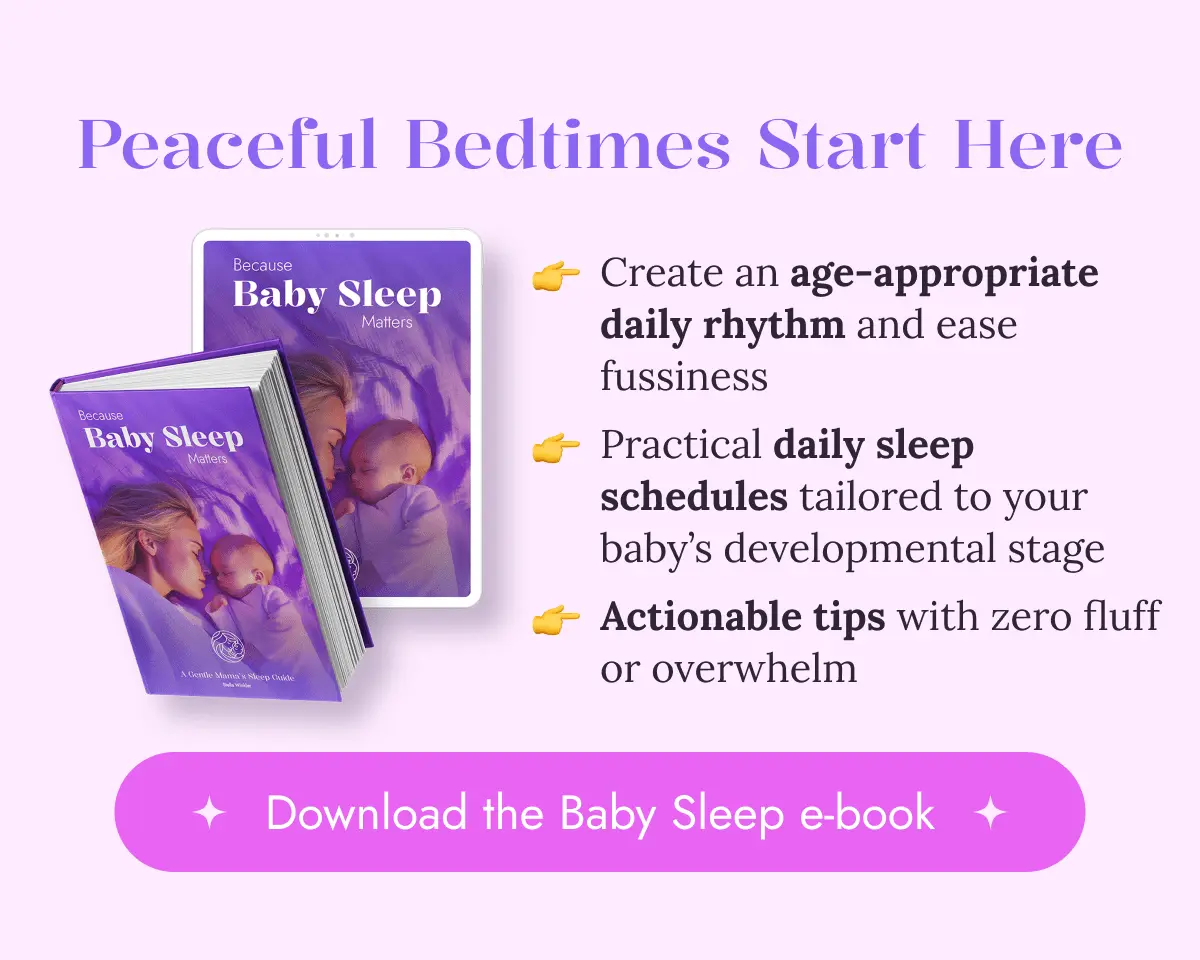In this article we’ll explore how to gently support your baby’s journey toward independent sleep — in a way that honors their developmental readiness and unique needs.
Supporting Independent Sleep
Independent sleep doesn’t mean leaving your baby alone or separating them from you. It’s a gentle skill your baby develops when they feel safe, supported, and close to you. Ideally, your baby falls asleep where they’ll continue to sleep — for naps or nighttime rest.
Unlike cry-it-out methods, this approach nurtures connection and security. You stay present and supportive, helping your baby build new sleep habits at their own pace — without tears or pressure.
How to Know When Your Baby Is Ready
Independent sleep is a gradual process. Your baby learns this skill when they’re emotionally and developmentally ready. Timing matters — and choosing the right moment makes all the difference.
Age
It’s best to begin after the 4-month sleep regression. Younger babies are not yet ready to fall asleep on their own — and that’s completely okay. At this stage, they may need to nurse, bottle-feed, be held, or rocked to sleep — all of which are valid and nurturing ways to meet their needs.
Daily Rhythm
Your baby should have an age-appropriate daily routine in place. Predictable rhythms help babies feel safe — they know what’s coming next. A consistent bedtime routine — like a bath, cuddles, or a quiet story — sets the stage for peaceful sleep.
Developmental Readiness
Your baby should be able to calm with your gentle presence — a soothing touch or close cuddle. If they respond well to your support, you can start introducing new ways to fall asleep, slowly and lovingly.

Right Timing Matters
Avoid Growth Spurts
During growth spurts — often around 6, 9, and 12 months — babies may need more food, closeness, and comfort. These phases can bring fussiness and make it harder to introduce new sleep habits. Wait for a calmer period before starting any changes.
Hold Off During Illness or Teething
When your baby is sick or teething, they may need extra help falling asleep — through feeding, holding, or rocking. During these times, it’s okay to pause the process and return to it later when your baby feels better.
Respect Your Baby’s Unique Pace
Every baby responds to change differently. If your little one seems unsettled or not ready, slow down. You can always take a break and come back to the process gently when the time feels right.
How to Support Your Baby Through the Transition
Your calm presence makes all the difference. Even if your baby resists or experiences a short regression, your patience and gentle support will help them feel safe. Even though they may not understand every word, your voice, tone, and closeness reassure them: “I’m here. You’re safe.”
Closeness and Physical Touch
Cuddles, soft touch, and holding your baby close create a deep sense of safety and connection. Loving physical contact — like hugging, snuggling, or stroking their hair — helps soothe stress and offers reassurance during changes in sleep routines.
Gradually Letting Go of Sleep Props
Many babies get used to falling asleep with the help of nursing, rocking, or being carried — and that’s completely okay. These methods are soothing and effective during the early months. Over time, though, they can become habits that make it harder for your baby to learn how to fall asleep independently.
Why Reduce Sleep Props?
- Better sleep for baby and parent: A baby who learns to fall asleep without external aids is less likely to wake during the night searching for the same support they needed at bedtime.
- Support for growing independence: Letting go of sleep props helps your baby develop self-soothing skills and the confidence to fall asleep on their own.
- Easier transitions: Babies who aren’t dependent on specific props adjust more easily to new environments — like sleeping away from home or in a different crib.
Want a Step-by-Step Plan?
If you’re looking for a gentle, stress-free way to support your baby’s sleep independence without tears, we created the Baby Sleep e-book just for you. This comprehensive guide walks you through daily steps, helps you overcome common challenges, and offers expert tips for handling regressions or routine changes.
Don’t waste time on methods that don’t feel right. Discover a gentle, evidence-based approach that truly supports your baby’s needs — and yours 💜

Meda Duskova
Meda’s a certified sleep consultant, trained in pediatric medicine, and mom to three lovely girls. She knows baby sleep isn’t one-size-fits-all — and she’s here to help you find what works, gently and without pressure.
More from This Author

